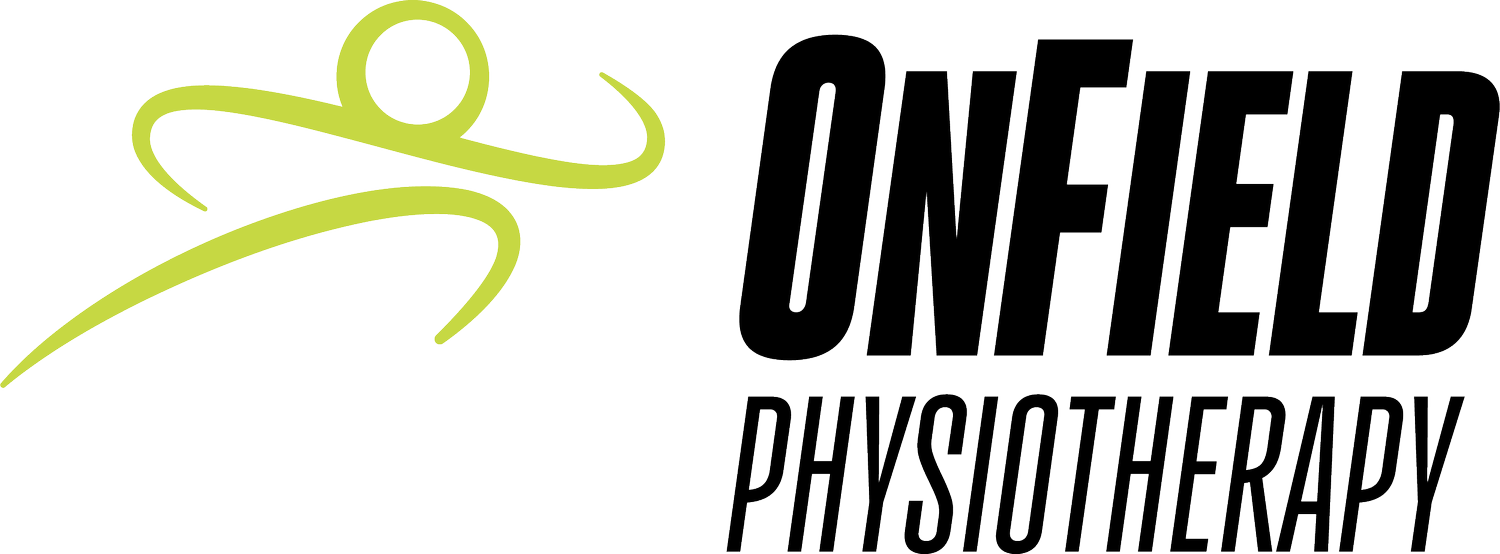Quad Injury (Quadriceps Strain) Treatment in Perth’s Southern Suburbs
Quad injury slowing you down; struggling to sprint, kick or change direction without pain; at OnField Physiotherapy in Bicton, we provide sports-specific assessment and rehabilitation to get you back to your best safely and confidently.
Located next to Melville Plaza Shopping Centre; just 5 minutes from Fremantle; we work with athletes and active people across Perth’s southern suburbs.
What Is a Quad Injury (Quadriceps Strain)?
A quad injury (quadriceps strain) occurs when the muscles at the front of the thigh are overstretched or torn; this often affects the rectus femoris muscle, which is heavily involved in sprinting and kicking.
Accurate diagnosis and grading are important; they guide how quickly you can return to running, training and competition.
Common Causes of Quad Injuries in Sport
Quad injuries are common in:
Football (AFL, soccer); repeated sprinting and long kicking
Running and sprinting sports; track, rugby, hockey
Sudden accelerations or decelerations; change of direction
Fatigue; poor warm-up; previous thigh or hip injuries
Imbalances between quad and hamstring strength; reduced hip mobility
Understanding the cause helps us design a rehab plan that not only heals the current injury; but also reduces the risk of re-injury.
Quad Injury Symptoms and When to See a Physio
Typical quad injury symptoms include:
Sudden sharp pain in the front of the thigh during sprinting or kicking
Feeling of a “pull”, “twinge” or “tear” in the thigh
Pain when walking, running, going up stairs or kicking
Localised tenderness; possible bruising or swelling
Weakness or loss of power when accelerating or kicking
You should see a sports physiotherapist if:
You felt a sudden sharp pain and had to stop playing
Pain or tightness is not improving after a few days of rest
You are unsure if it is safe to keep training or playing
You have had repeated quad strains or ongoing thigh tightness
How We Assess Quad Injuries at OnField Physiotherapy
At OnField Physiotherapy you will be assessed by experienced sports physiotherapists with extensive experience in professional and semi-professional sport; including WAFL, A-League and state programs.
Your assessment typically includes:
Detailed history; how the injury occurred; sport and position; training load
Physical examination; palpation of the quadriceps; range of motion; strength testing
Functional testing; walking, squatting, lunging, running mechanics
Screening for contributing factors; hip and pelvic control; core strength; previous injuries
If we suspect a more significant tear or associated injury, we can liaise with your GP or sports doctor regarding imaging (e.g. ultrasound or MRI) when appropriate.
Quad Injury Treatment and Rehabilitation
Early management focuses on:
Relative rest from aggravating activities; avoiding further tearing
Swelling and pain management; ice in the first 24–48 hours; compression; elevation where appropriate
Gentle range of motion exercises; to prevent stiffness without overloading the muscle
Rehabilitation then progresses through:
Strength and control
Targeted quadriceps and hip strengthening; including rectus femoris
Addressing imbalances with hamstrings and glutes
Core and pelvic stability exercises
Running and loading progressions
Gradual return to walking, jogging, then running
Controlled acceleration and deceleration drills
Change-of-direction and cutting drills specific to your sport
Power and sports-specific skills
Plyometrics; jumping and landing mechanics
Kicking progressions for football codes
Position-specific drills (e.g. midfield running loads; sprint efforts)
Return-to-sport criteria
Objective strength and power measures
Sport-specific testing; sprinting, kicking, change of direction
Clear, individualised return-to-training and return-to-competition plan
All rehabilitation is completed using our on-site gym facilities; ensuring your exercises are supervised, progressed appropriately and aligned with your sport.
How Long Does a Quad Injury Take to Heal?
Recovery time depends on the severity and location of the strain; your sport; and how early you start appropriate rehab.
As a general guide:
Grade 1 quad strain; often 1–3 weeks to return to sport
Grade 2 quad strain; typically 3–6 weeks with structured rehab
Grade 3 tear; can take longer; and may require medical or surgical input
Returning too early; or without adequate strength and power; increases the risk of re-injury; which can lead to longer time away from sport. Our goal is to balance a safe and efficient return with your performance goals and competition schedule.
Why Choose OnField Physiotherapy for Quad Injuries?
APA Titled Sports and Exercise Physiotherapist; advanced training in sports injury management
Experience with elite and semi-elite teams; South Fremantle Football Club (WAFL Premiers), Perth Glory A-League, WA State programs
On-site gym facilities; full rehabilitation from early-stage injury to return-to-performance
Strong understanding of football, running and field sport demands; from weekend warriors to elite athletes
Clear communication with coaches, strength and conditioning staff and other health professionals when required
We understand the pressures of training and competition; we work with you to create a plan that fits your season, position and long-term goals.
Book an Appointment for Your Quad Injury
If you have a quad injury or ongoing thigh pain; early assessment and a structured rehab plan can significantly reduce your time away from sport.
Book an appointment with OnField Physiotherapy in Bicton today;
Serving athletes and active individuals from Bicton, Melville, Fremantle and across Perth’s southern suburbs.

